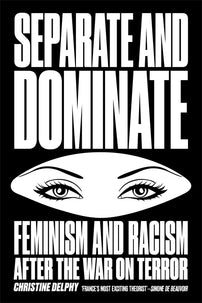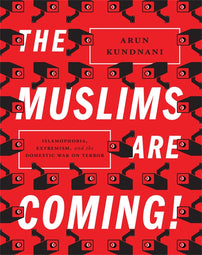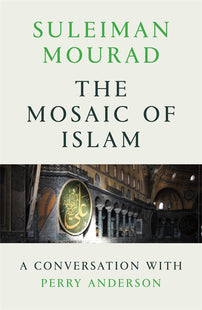Secularism and the Freedom of Believers
Emmanuel Terray, showing the contradictions in the Western tradition between religious freedom and the rule of law, warns how the Republic's enforcement of secularism promotes violence.

A certain formula often crops up in the speech of our politicians when they speak of secularism. In their eyes, secularism is respected only by those who place the law of the Republic above the law of God.
In this categorical, general and absolute form, such an assertion is clearly quite unacceptable to a convinced believer, whether Christian, Jewish or Muslim; for those who hold that God exists, it is in fact logically inconsistent.
Indeed, how could the law of a particular earthly community, subject to the vagaries of history and exposed by nature to the mutations, deviations, corruption and decline that await everything here below – how could such a law be superior to the law laid down by a transcendent, eternal, all-powerful Being, creator of heaven and earth? For a true believer, to admit that in case of conflict the law of the Republic must be preferred to the law of God would be utterly absurd. If a contradiction arises between the two laws, it is the law of God that must in good reason prevail, by virtue of the fact that it expresses the will of a Being whose ‘ontological weight’ is infinitely greater than that of any human community.
Of course, things are not that simple. The law of God, as expressed in the various religions, manifests itself through different interpretations, whose fidelity is a matter of debate. But these interpretations are not entirely free; not every prescription can be presented as pertaining to the law of God. By the very fact that it emanates from a good, just and merciful Being, divine law, in whatever interpretation it is presented, cannot order crime, or more generally evil, whether moral or social. For example, a law that would require a proliferation of human sacrifice, as was the case with the Ashante and Aztecs, cannot express the will of a good God. Clearly, this would be an illegitimate interpretation.
A second limit can be set. As philosophy has recognised since Aristotle, the human being is a social being, so God cannot command attitudes or acts incompatible with life in society. For example, a law that would generally prohibit sexual intercourse and procreation could not come from God, because it would lead to the disappearance of the species in the short term. God cannot want to destroy what he himself has created.
Human law, too, has its limits. Fundamentally, it is competent for the things of the earth, but not for the things of heaven. In other words, belief and, more generally, the spiritual are beyond its grasp. This is not a norm, but a fact: human beings are sovereign masters of their ‘inner self’; consequently, they are free in all circumstances to think and believe what they wish. Human law can therefore only be aimed at acts and behaviour.
In a certain sense, secularism as understood by the authors of the 1905 law is nothing other than recognition of this fact. The Republic leaves complete freedom to believe or not to believe; if it does not promote or support any religion, it is because it refuses to choose between religions. In other words, it recognises the existence of a space – the religious, or more generally the spiritual – to which it refrains from seeking access.
In fact, the 1905 law presupposes a kind of division of labour, in which divine law and human law operate neither on the same level nor in the same areas. Even if it sometimes requires collective action, God’s law is ultimately addressed to individual consciences and sets out the conditions for their salvation, however this is defined. Human law, on the other hand, organises the social life and peaceful coexistence of individuals; if necessary, it unites them around a social or political project, but this does not go beyond the limits of the earthly horizon. As a result of such a division, divine law and human law should never meet; so they should neither enter come into conflict nor contradict one another.
Such a conclusion is obviously somewhat optimistic. In actual fact, divine law commands not only beliefs and thoughts, but also actions and conduct; so it can interfere with human law, and it is enough for either of the two laws to improperly cross the boundary between them in order for conflict to break out.
On the other hand, if these boundaries are respected, collisions should be the exception. If divine law, or rather the interpretation given to it, is in accordance with the essence of God (again, of a good, just and merciful God), and if human law respects the freedom of the inner self, most conflicts will hopefully be avoided.
We can hope so, but there is no guarantee that conflict will never erupt. What happens in such a case?
Let us take a historical example, far enough away that we can discuss it without passion: the Roman persecution of Christians in the 2nd and 3rd centuries AD. We know the origin of this. The Roman authorities instituted an imperial cult: sacrifices had to be made before the statue of the emperor. Historians agree that the imperial cult did not imply any particular belief; it was simply a ritual symbolising the allegiance of citizens to the empire. By this ritual, the state hoped to strengthen the unity and cohesion of the Roman world against the threats of disintegration that lay in wait for it. Ultimately, the modern equivalent of the imperial cult would be saluting the flag and standing when the national anthem is played.
For Christians, however, this was an idolatrous gesture; such homage could only be paid to God. Pretending to obey the rule would be both cowardice and hypocrisy; there was no other way but refusal. In the eyes of the rulers, however, this refusal expressed a will to dissent, or, as President Macron would say, an unacceptable separatism, almost a betrayal. Repression was therefore inevitable.
Is it possible to decide?
It seems to me that two demands and two approaches clash in a case like this, each as legitimate as the other. The Roman state was justified in seeking ways to strengthen its solidity; while for their part, by refusing the imperial cult Christians were merely remaining loyal to their faith. For us, therefore, the debate is undecidable; both sides were right; at most, the Roman state can be blamed for the unnecessary cruelties of persecution.
This is the appropriate place to refer to a fundamental text on the subject, Martin Luther’s letter ‘On the Freedom of a Christian’. Luther’s thesis is simple: because he is bound to God by faith, the Christian is placed above all human powers and all laws they might enact. In other words, for him no earthly decision is without appeal and no commandment without recourse. Even if it is the king or emperor who has spoken, the last word always belongs to God, and to the individual conscience once it is impregnated by the spirit of God. In this respect, the Christian is free, the freest of human beings; he submits to the established authorities only if he wishes to do so and so far as his faith permits.
Let us listen to Luther: ‘To a Christian man his faith suffices for everything, and he has no need of works for justification. But if he has no need of works, neither has he need of the law; and, if he has no need of the law, he is certainly free from the law… This is that Christian liberty.’ And again: ‘A Christian man is the most free lord of all, and subject to none.’
Luther himself proudly embodied this Christian freedom at the Diet of Worms on 18 April 1521, when, summoned to recant by the assembly of German princes and the papal legates, he threw in the face of the Christian world his famous ‘I cannot.’
Luther’s reasoning applies to those faithful to Yahweh and Allah as much as to those faithful to Christ. So, from now on, we will speak of the freedom of the believer. In fact, faith gives the person who lives it a sovereign freedom, both inflexible and irreducible. Therefore, how should we proceed if we seek to make the believer evolve, to bring them to change this or that point in their thought or behaviour?
Clearly, it is vain and most often counterproductive to resort to coercion; in a convinced believer it can only provoke revolt and resistance, or, worse still, hypocritical submission. Law, which imposes an obligation accompanied by a sanction, is clearly a constraint; it should therefore be avoided.
Here, we must regret the French fetishism of the law: I mean the illusion that to solve any problem it is sufficient to enact a law. There are many problems that cannot be solved by law, and the one we are dealing with here is a case in point.
If we consider that this or that behaviour of the believer is contrary to our values, there is no alternative than to show them that this behaviour does not reflect the will of God. For example, a just God cannot want women to be regarded (and treated) as inferior to men. More generally, there is no other way than pedagogy, discussion, persuasion.
It would be in our interest, in the circumstances, to draw inspiration from traditions other than our own, for example from the Confucian tradition. For Confucius and the thinkers who followed him, law was only a second-best, to be used only as a last resort. Indeed, it punishes after the deed when it would be better to prevent this. It treats different situations uniformly. By emphasising punishment, it extends and reinforces the violence it claims to combat. Finally, it plays on the negative feeling of fear of punishment, not on positive adherence, and in this way produces external conformity, not internal conviction.
A wise ruler therefore legislates only in an exceptional case. He governs above all by example and education, thus setting himself up as a model, and his action boils down to the diffusion of a radiance, the exercise of an ascendancy, the deployment of an influence. Confucius compares this to the invisible breath of the wind that bends the grass.
Incidentally, we can see how far the measures currently envisaged by our government are from the Confucian recommendations. There is talk only of prohibitions, closures, control, surveillance; nothing on pedagogy, nothing on dialogue, without which no real progress would be possible.
However, a precondition for this dialogue is mutual respect between the interlocutors. To introduce this notion of respect, I will refer to a legal text which, strangely enough, is totally ignored in our current debates on secularism. It is Article 1 of the Constitution, which states that ‘France is an indivisible, secular, democratic and social Republic [...] It respects all beliefs’ (my emphasis).
This text should be taken seriously; it seems to me that three conclusions can be drawn from it.
Firstly, the text says: ‘France [...] respects all beliefs.’ It does not say ‘tolerate’ or ‘accept’, it says ‘respect’. While respect is not incompatible with criticism, it does exclude insult. Insulting a religion, whatever it may be, is therefore contrary to Article 1 of the Constitution.
Secondly, many commentators insist on the distinction that should be made between insulting belief, which is lawful, and insulting believers, which is not. Apart from the fact that this distinction is quite abstract – for a genuine believer identifies with his or her belief and considers it an essential part of themselves – the first article of the Constitution does not make it. It is beliefs that must be respected.
Thirdly, who is obligated by this text? France, or the Republic, is not just the state or the government, it is the community of citizens, so each and every one of us.
Consequently, when young Mila* declares that Islam is ‘a shitty religion’, she is violating Article 1 of the Constitution. This does not justify the treatment she received on social networks, but it also does not transform her into the Joan of Arc of secularism.
When Charlie Hebdo’s cartoonists repeatedly caricature the Prophet Mohammed, are they practising the respect for the Muslim faith prescribed by the Constitution? Do those who claim the right to blasphemy respect Christian, Jewish or Muslim beliefs? The question is at least worth asking.
One last clarification, to avoid, if possible, any questioning of motives. Personally, I am not a believer. In my opinion, however, peaceful coexistence between non-believers and believers presupposes that each side strives to understand the other and put themselves in the other’s place. This is what I have attempted in this text.
Emmanuel Terray, 4 November 2020
P.S. The above was written before the horrific attack that took the life of the Conflans teacher Samuel Paty. This abominable crime calls for unanimous and unqualified condemnation on our part, but, in my opinion, it does not detract from the relevance of the questions I have asked; it only makes them more pressing.
* Mila is a teenage girl who created a storm on social media by posting hate videos attacking Islam. [Translator]
[book-strip index="1" style="display"]Originally published at: https://blogs.mediapart.fr/emmanuel-terray/blog/041120/la-laicite-et-la-liberte-du-croyant
Translated by David Fernbach





